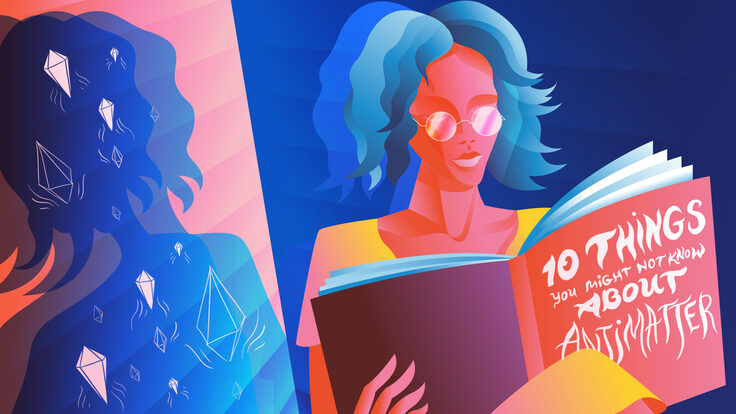
Judges named Shree Bose (red and white trophies), Naomi Shah (blue), and Lauren Hodge (yellow) winners of last year's Google Science Fair. Image: Google
Submissions opened today for Google’s second annual science fair.
Last year’s winner earned a trip to CERN laboratory in Europe, among other things. This year not one, but two particle physics institutions will contribute to the fair. Engineer Steve Myers, director of accelerators and technology at CERN, and physicist Young-Kee Kim, deputy director of Fermilab, will each participate on the final judging panel. The grand prize winner will receive a trip to visit both labs.
Submissions open today; applications can be found here.
Google Science Fair is an international competition for students between the ages of 13 and 18. All entrants, who can submit individually or in a group of up to three students, must create online profiles about their projects through the fair’s website. Then, a panel of preliminary judges will select 15 finalists to attend the fair’s last round of judging in person at the Google headquarters in Mountain View, California. The public also gets a say – one entrant will win the “People’s Choice Award” based on online votes.
In Mountain View a panel of high-profile scientists and leaders, including Myers and Kim, will choose a winner to fill each age category: ages 13-14, 15-16, 17-18 and the grand winner.
Kim, for one, said she is looking forward to the event this summer. As a middle school student in South Korea, Kim came out first in a regional science competition. “I think winning this competition gave me a lot of confidence about myself, and this greatly helped me to pursue my career in particle physics,” she said.
Last year’s grand winner, Shree Bose, plans to cash in her visit to CERN this spring. The prize this year will be slightly different. First, the winner will visit Fermilab and meet with a scientist from the CMS experiment, which has a remote control center at that lab. Then that scientist will accompany the winner from the U.S. to Geneva, Switzerland, to tour CERN.
In addition to laboratory visits, all finalists take home a host of other prizes including a hefty college scholarship.
Last year Google allowed only entries in English. But in the 2012 fair, Google is allowing entrants to submit projects in 13 different languages. The competition is sure to be tough. In 2011, more than 10,000 students in 90 countries submitted more than 7,500 projects.
Scientific American is sponsoring a new Science in Action award for “a project that addresses a social, environmental or health issue to make a practical difference in the lives of a group or community.” Also new this year will be the selection of 90 regional finalists: 30 each from the Americas, Europe-Middle East-Africa and Asia Pacific.
CERN is joined by LEGO, Scientific American and National Geographic in sponsoring the science fair.
The entry window closes on April 1, 2012. For more information, see Google Science Fair.
Watch a video about last years' winners' visit to the White House on YouTube.






